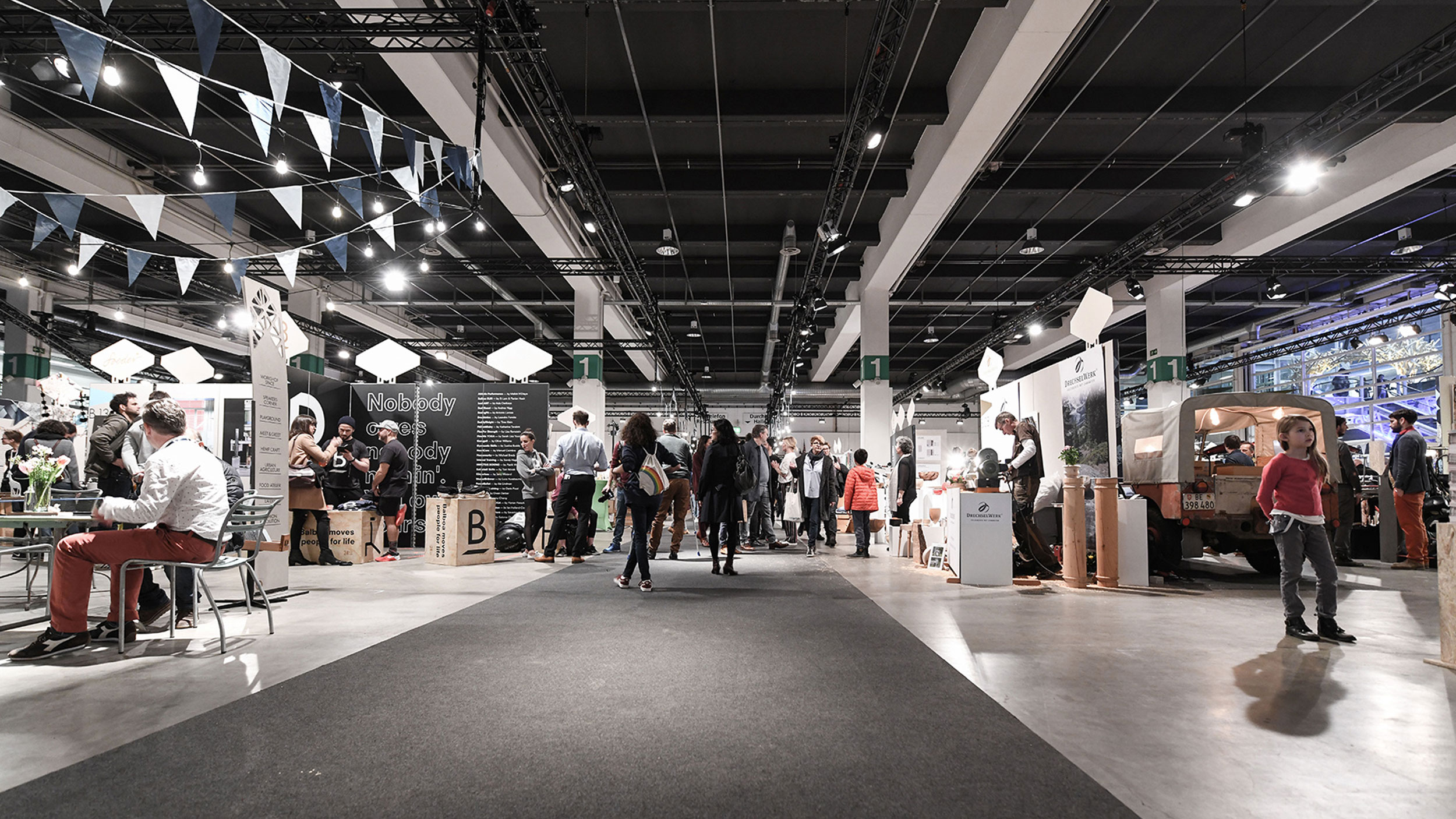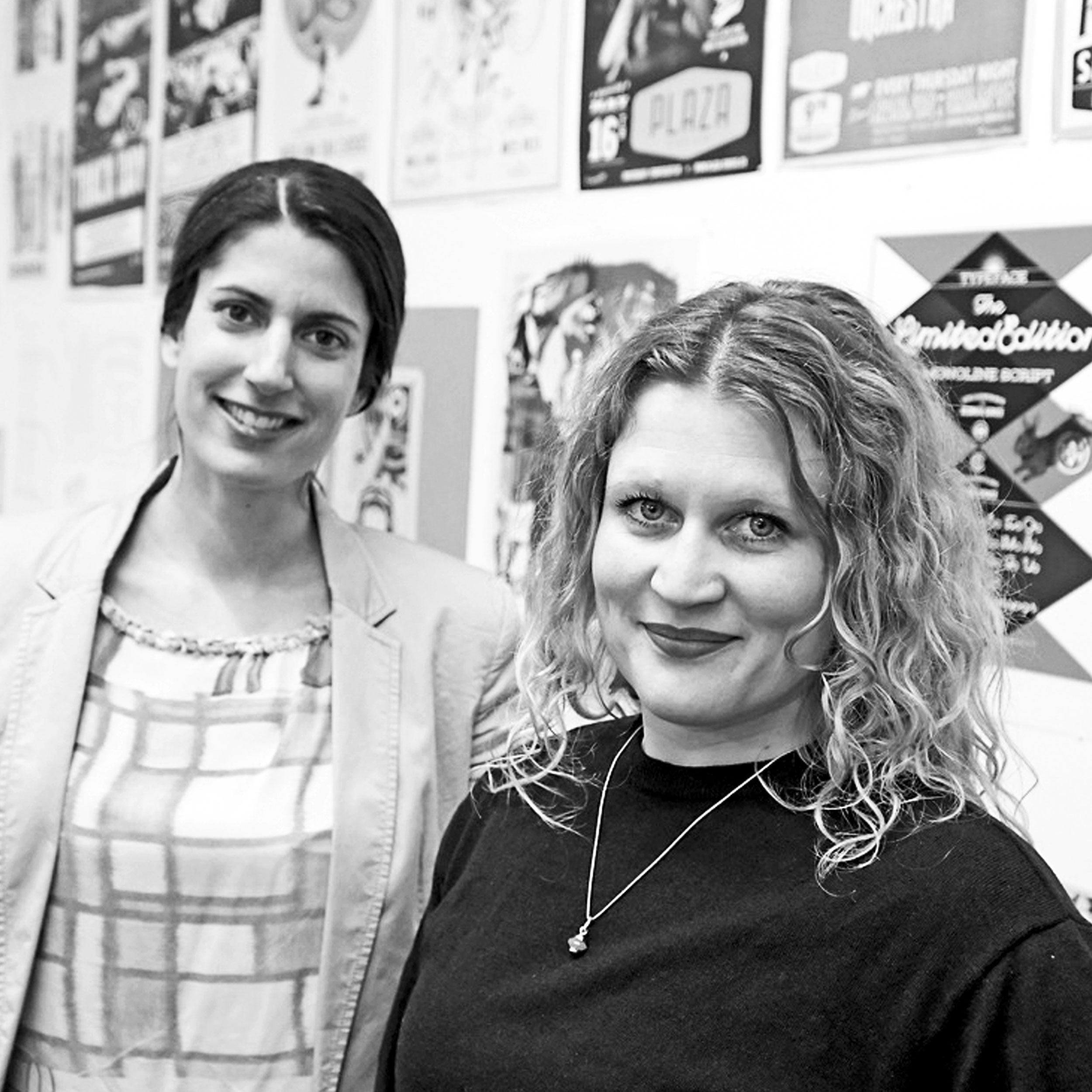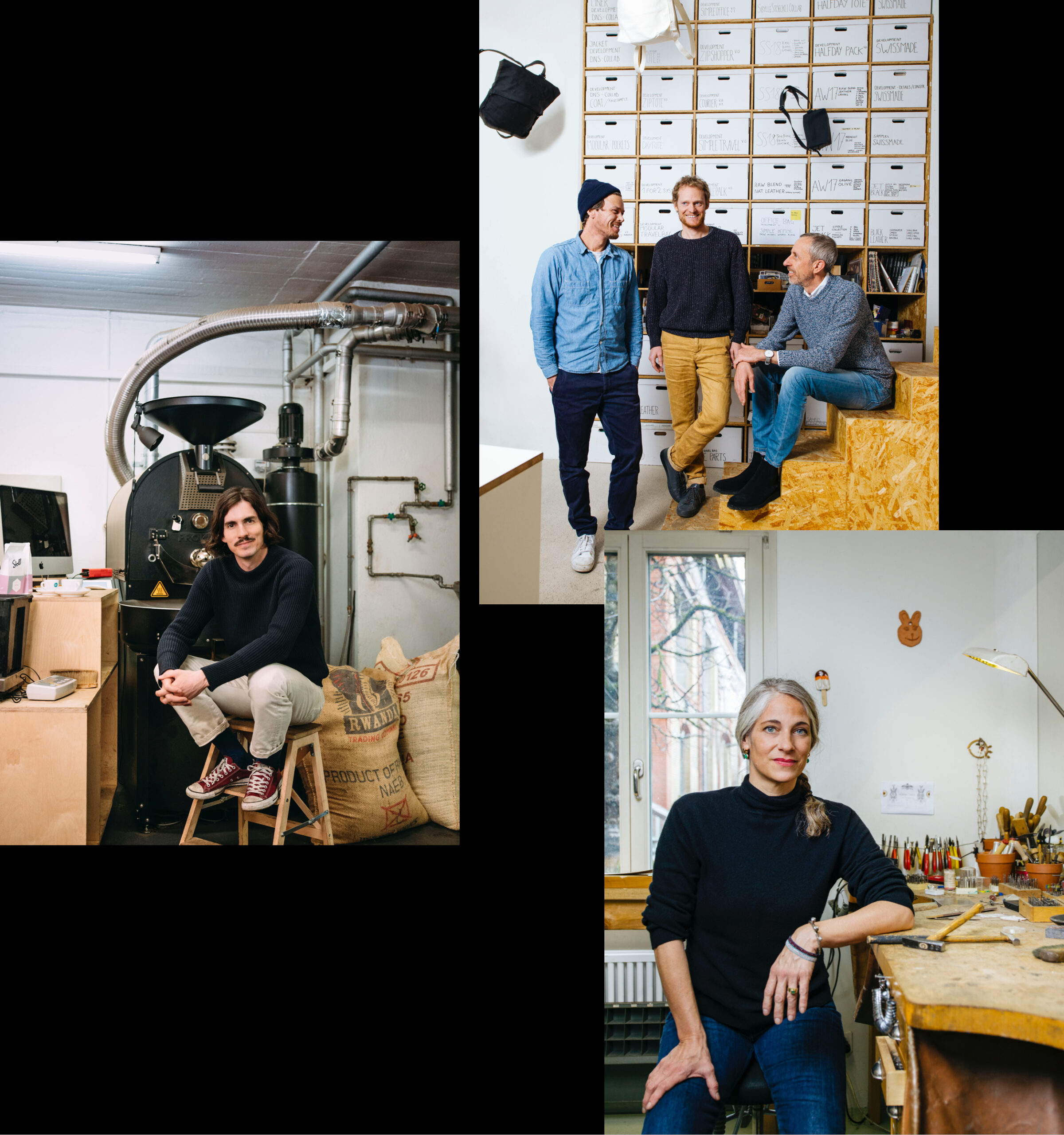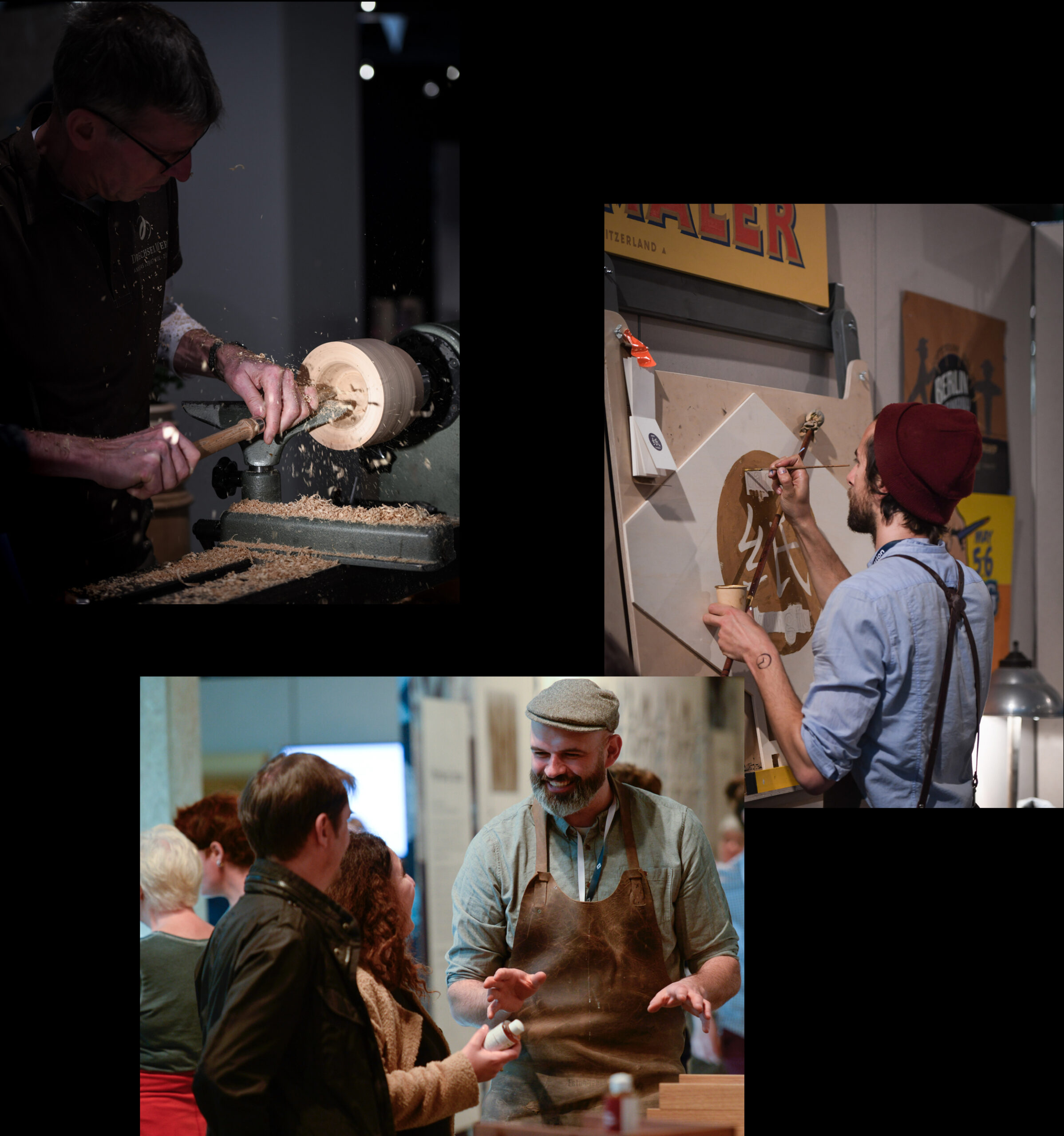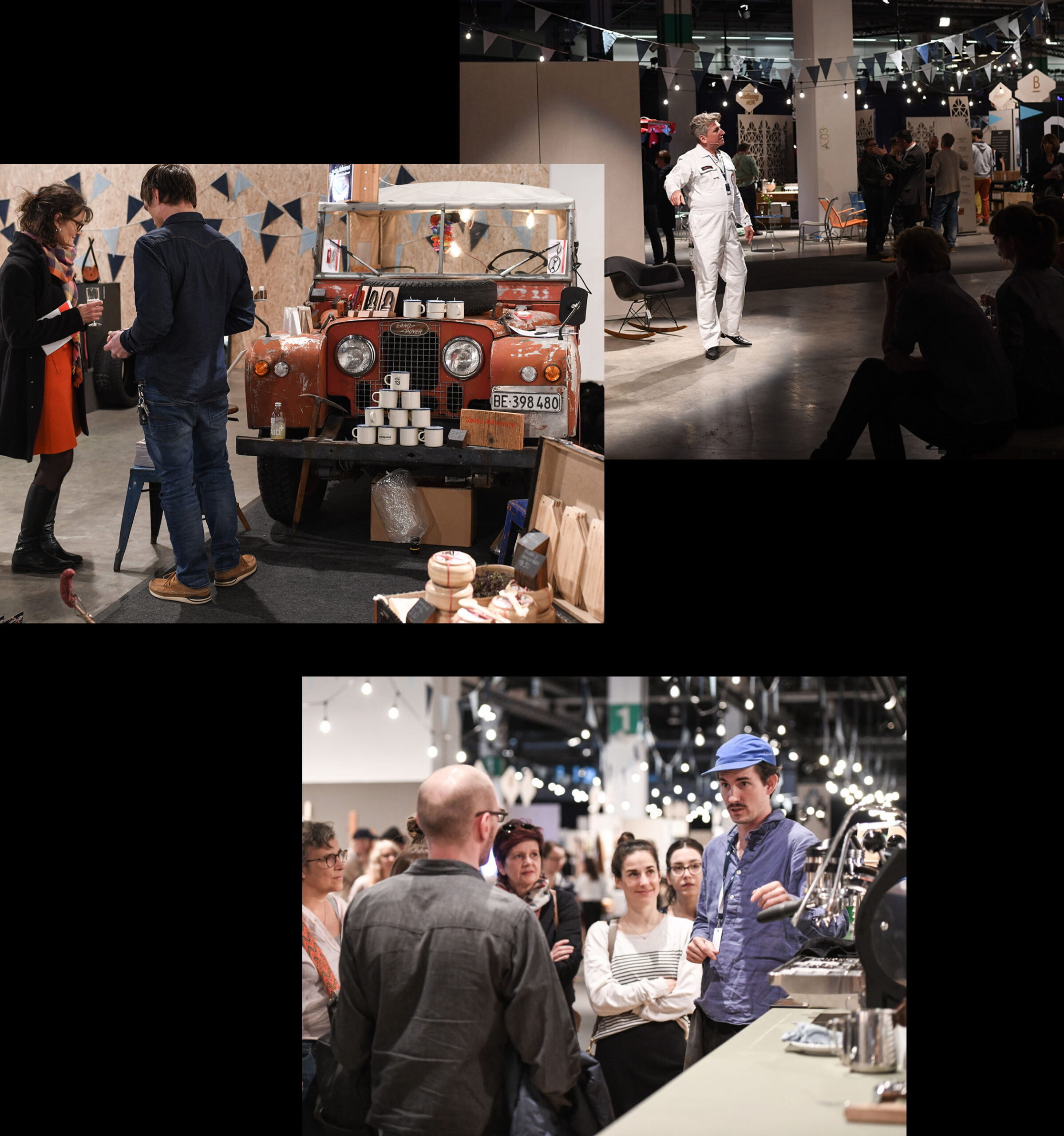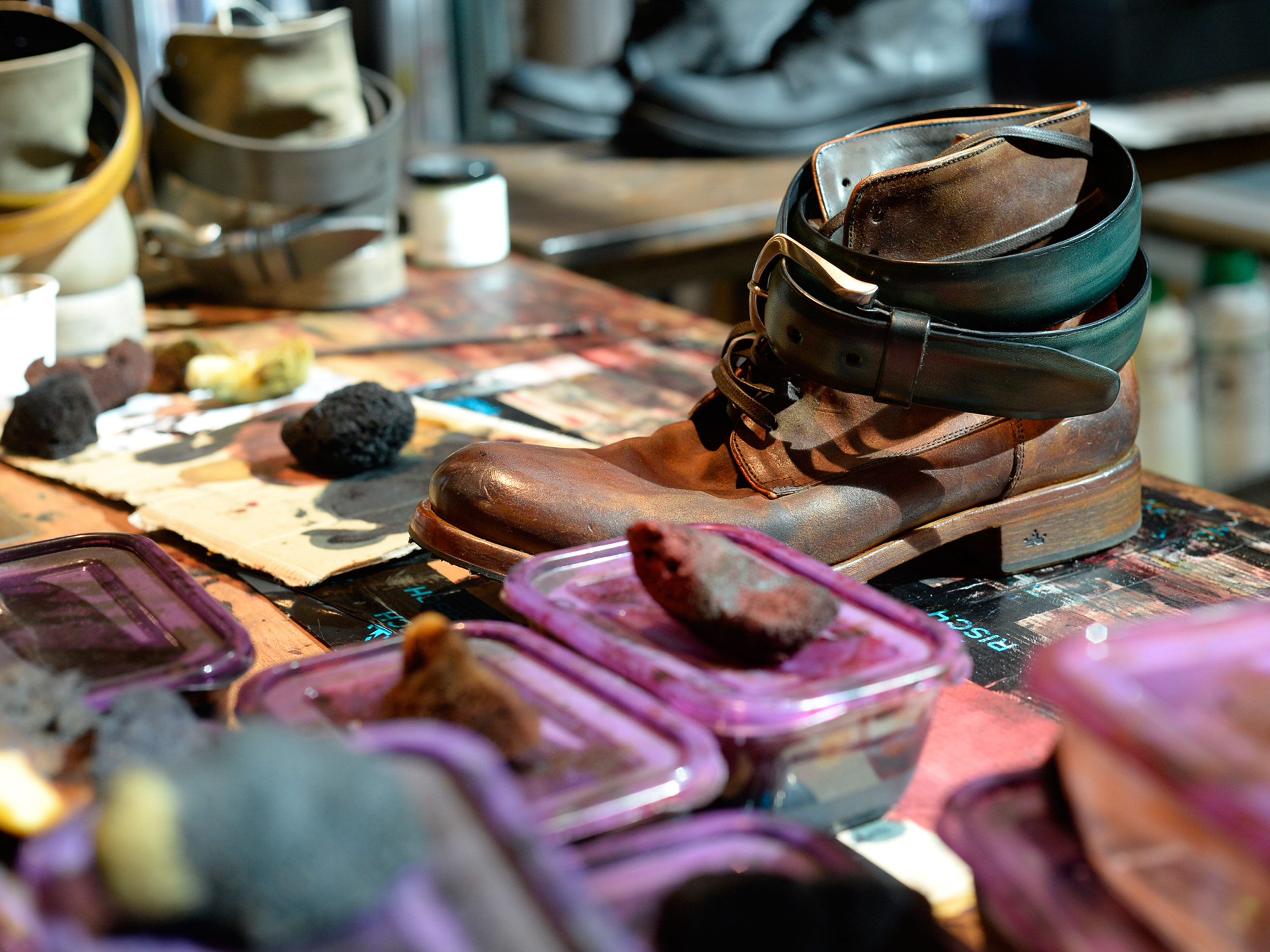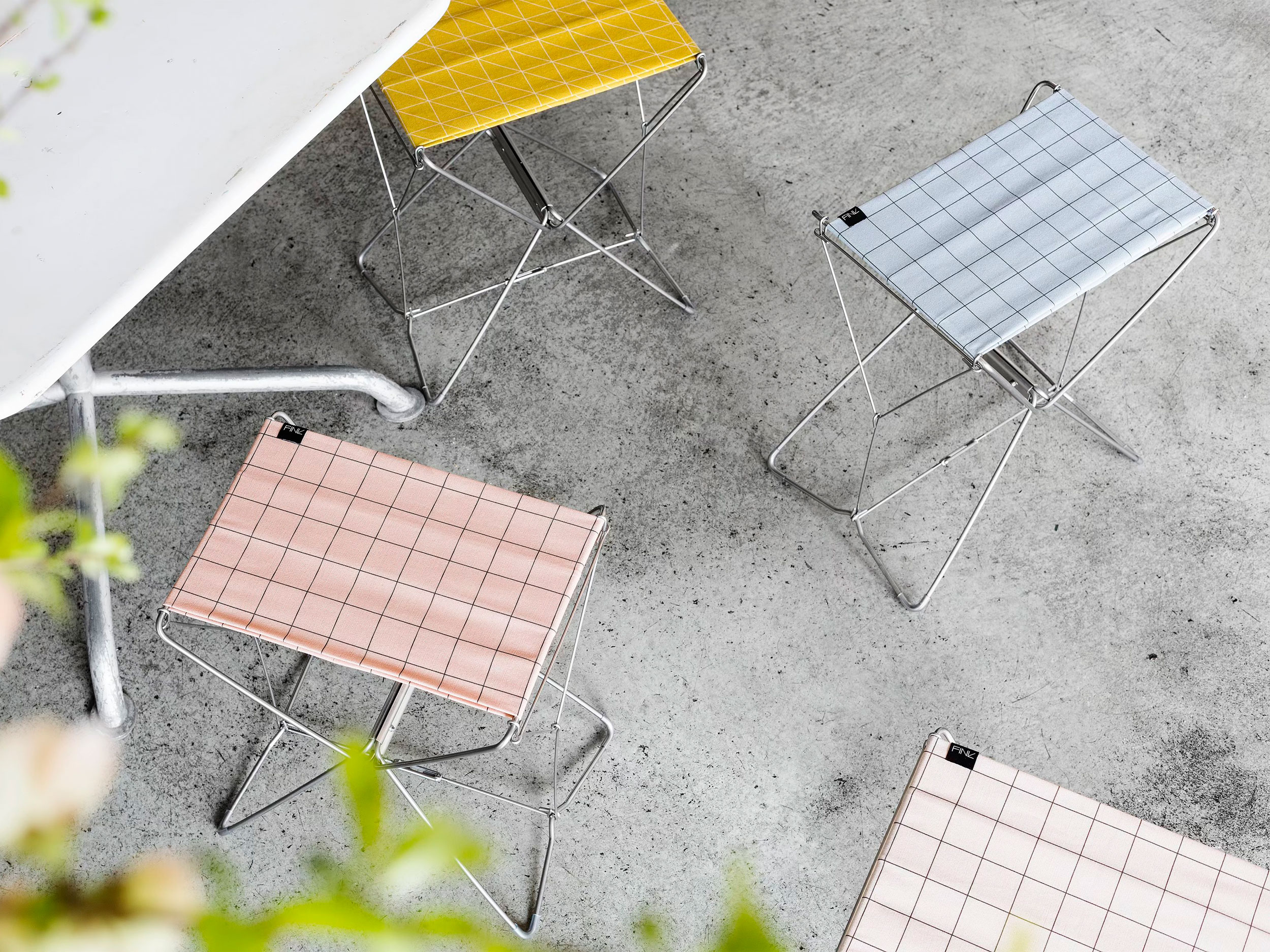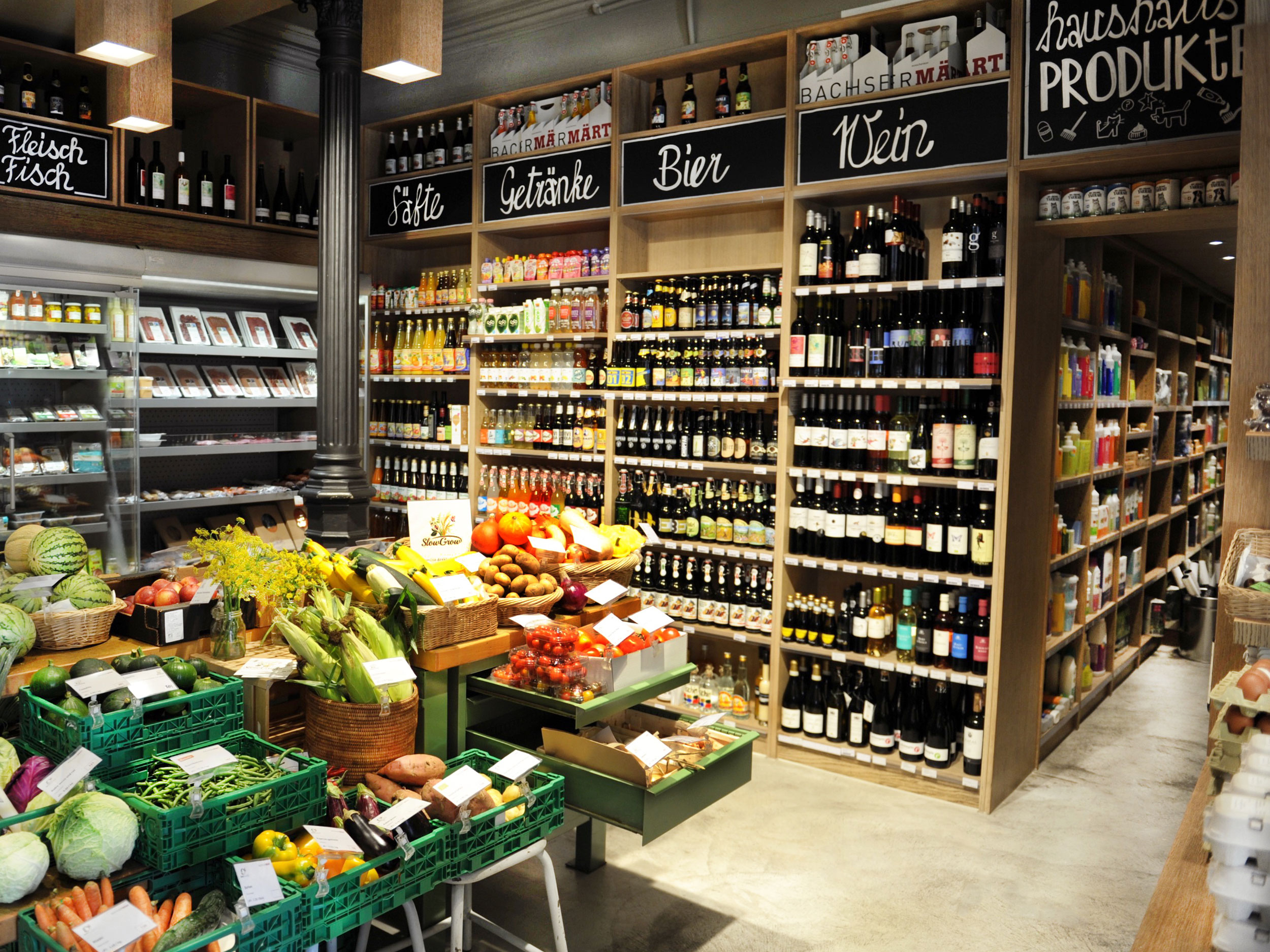"Today there is no topic more important than the future."
Susanna Koeberle • 12.03.2019
In 2018, for their opening event, they achieved a small feat: With the first Criterion Festival “For a Future with a Future”, its two initiators Regina Gregory and Mia Odermatt successfully drew more than 8,000 to the exhibition hall in Oerlikon. The second event takes place in fourteen days, and will provide a diverse source of inspiration and resources for anyone looking for new ideas that can be implemented, inhabited, owned, enjoyed or worn. And all sustainable, pleasurable and enjoyable. Susanne Koeberle spoke to the two driving forces behind the festival.
The kick-off last year captured the spirit of the time perfectly, but how did the “Criterion” festival come about?
Regina Gregory: We were commissioned by the Director of Messe Zürich to come up with a new format. Our starting point was the desire to initiate change, because there are already enough design fairs in Zurich. We thought about how we could get people involved with new topics. This would subsequently give rise to new appreciation, which in turn would allow for change. It’s all about finding solutions to the big challenges of our time.
How do you find the “right” exhibitors?
Mia Odermatt: “Criterion” has a curated format. We carried out a lot of research last year in a very short time, which was time consuming, but at the same time, exciting. Alongside many other formats, Instagram is also interesting as a source.
Regina Gregory: Our Creative Board of experts is also extremely important. They are like seismographs who make contacts and open doors for us.
You are now launching a new format, the “Zurich Maker Days”. What exactly is this addition?
Mia Odermatt: The framework programme of the first “Criterion” festival was very comprehensive. And although we had been advised against such interactive formats, the workshops and talks, where you could experience, learn and lend a hand, were all well attended.
Regina Gregory: It takes more than just people who have ideas. It also requires an active audience for these ideas to have a future. Our second concern was to create a collective of producers. The visualisation of these initiatives and projects creates new interfaces.
The main topic of both formats is the future of consumption. Why is that?
Mia Odermatt: Today there is no topic more important than the future. Once we are aware of the products we consume, then we can do a lot of good.
Regina Gregory: It requires a change of perspective, because many people have lost the desire to consume. We are often overwhelmed. At the same time, there are so many good fun ideas and solutions that also result in better quality of life. This is what we want to show people. The sum of such individual initiatives will ultimately result in major changes.
Craft was once seen as dusty old tradition, today it is hip again. How does this relate to the digital world?
Mia Odermatt: A good example: The manufactory Fink still weaves its fabrics by hand. For the stand design, however, they delivered a precise 3D rendering to us. This is a perfect combination of the latest technology and craftsmanship.
Regina Gregory: People can once again see that life is still analogue. And that digitalisation is a great tool, but will never replace life. Having an exchange with the person behind a product is something beautiful, which has long been forgotten. This does not mean that the digital world has no role to play.
Is the younger generation more susceptible to issues such as sustainability and conscious consumption?
Mia Odermatt: The recent climate demonstrations say it all. At the same time, this topic is also tied to education, but there is still a long way to go.
Regina Gregory: I think so. For a long time people were able to look away without there being any noticeable consequences, especially in a country like Switzerland. All the natural disasters were taking place far away. But the problems are no longer invisible, as we can see in the case of plastic in the sea. Change needs time. The first step is when you begin to doubt your own world view and it is here that there seems to be some movement.
What about the economic aspect? Will these new creators also be able to make a living from their produce?
Mia Odermatt: Today, there are new economic models. It is not necessary to have a 100 percent job to make a living. I notice that many Makers have several jobs.
But who can afford these expensive products?
Regina Gregory: It requires some rethinking. These things may cost more, but in the longer term, you save, because they last longer. With more expensive products, waste also decreases. This is the case with organic potatoes or with a nice piece of paper that I keep to use again. It is also ok if you can not achieve everything. It has long been known from research that people are happier when they have saved on something.
Today we speak of prosumers, of productive consumers. What role do workshops play for you?
Regina Gregory: A very important one. We have got both “activity spots” and “workstations”. Many exhibitors exhibit their craftsmanship on site. We want to show the story behind the product as well as the processes. In this way, we are also able to focus on social and environmental technology topics.
The Zurich Maker Days are about local businesses. How important is Zurich as a location?
Regina Gregory: Although “Criterion” is a national format, its anchoring in Zurich is very important. We have noticed time and again that many people from abroad have a completely outdated picture of Zurich. There are only a few cities that have this combination of cutting-edge research and design history. Zurich is much more than a financial metropolis. We want to demonstrate this with a pre-event, which takes place two weeks before the “Criterion” festival.
How did you decide on these topics yourself?
Regina Gregory: For me, it was the realization that I am doing a lot wrong. For example, I suddenly noticed that I was always so stressed out in department stores. Since I have started shopping in local stores, I am no longer stressed. You need this type of experience. But I also realise that I could do more. It does not feel good to know that the greatest inheritance we are leaving is destruction. It is better to start acting differently today. Because the future is already here.
Mia Odermatt: From the different Makers you learn that it is not that difficult to make your own products. It is inspiring. For example, I have started to knit woollen sweaters and I am learning more and more that everything is possible.
What do you do personally for to be more sustainable?
Mia Odermatt: For me it is nutrition: as regional as possible. I subscribe to a vegetable box scheme. I eat meat considerately. Also with respect to clothing: I buy locally made and durable pieces. I no longer have an interest in fast fashion.
Regina Gregory: Fashion is a good example. I turned a blind eye for a long time. I did not know where to find better products. This has changed enormously. For example, I recently ordered an autumn coat to be made for me by one of last year’s exhibitors. It will be delivered in six months and I am looking forward to it with the excitement of a child. You have to have things available if you want to change something.
You are reluctant to use the term “sustainability”. Why is that?
Regina Gregory: The word is over-used. Sustainability often sounds like sacrifice. However, what we consider sustainable, are products that are integrated with their environment, are well thought out and have an appealing design. They are the better products and therefore command their price. That’s why we like the phrase “future-oriented” better.
What are your visions and goals for the festival?
Regina Gregory: A future with a future is our main topic. We want to help move the system and promote and spread a new mood. It is also about sharing ideas, not just a platform for products.
Mia Odermatt: It is important for us not only to inspire regionally. There are also many exciting ideas and innovations abroad that we would love to bring to Zurich.
Photography: Manufaktur Fink, Daniel Hager, Alan Maag, Stephan Sonderegger
